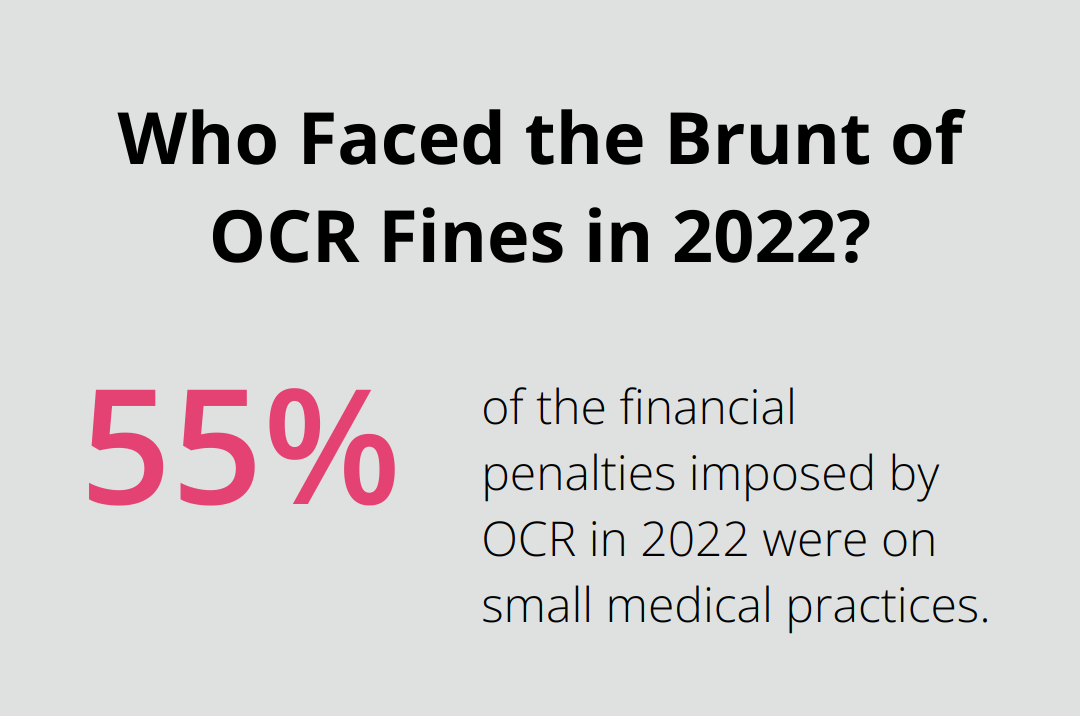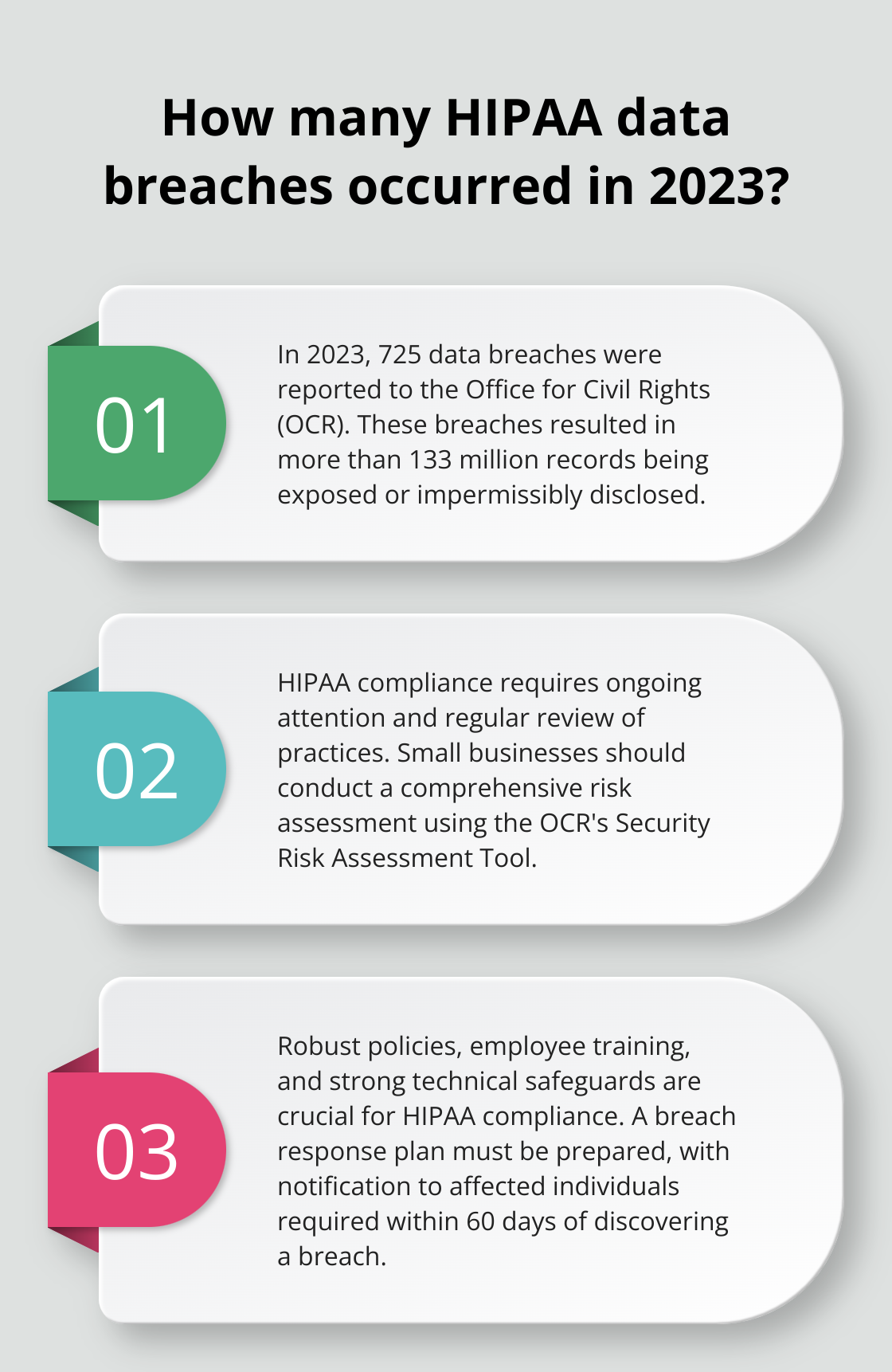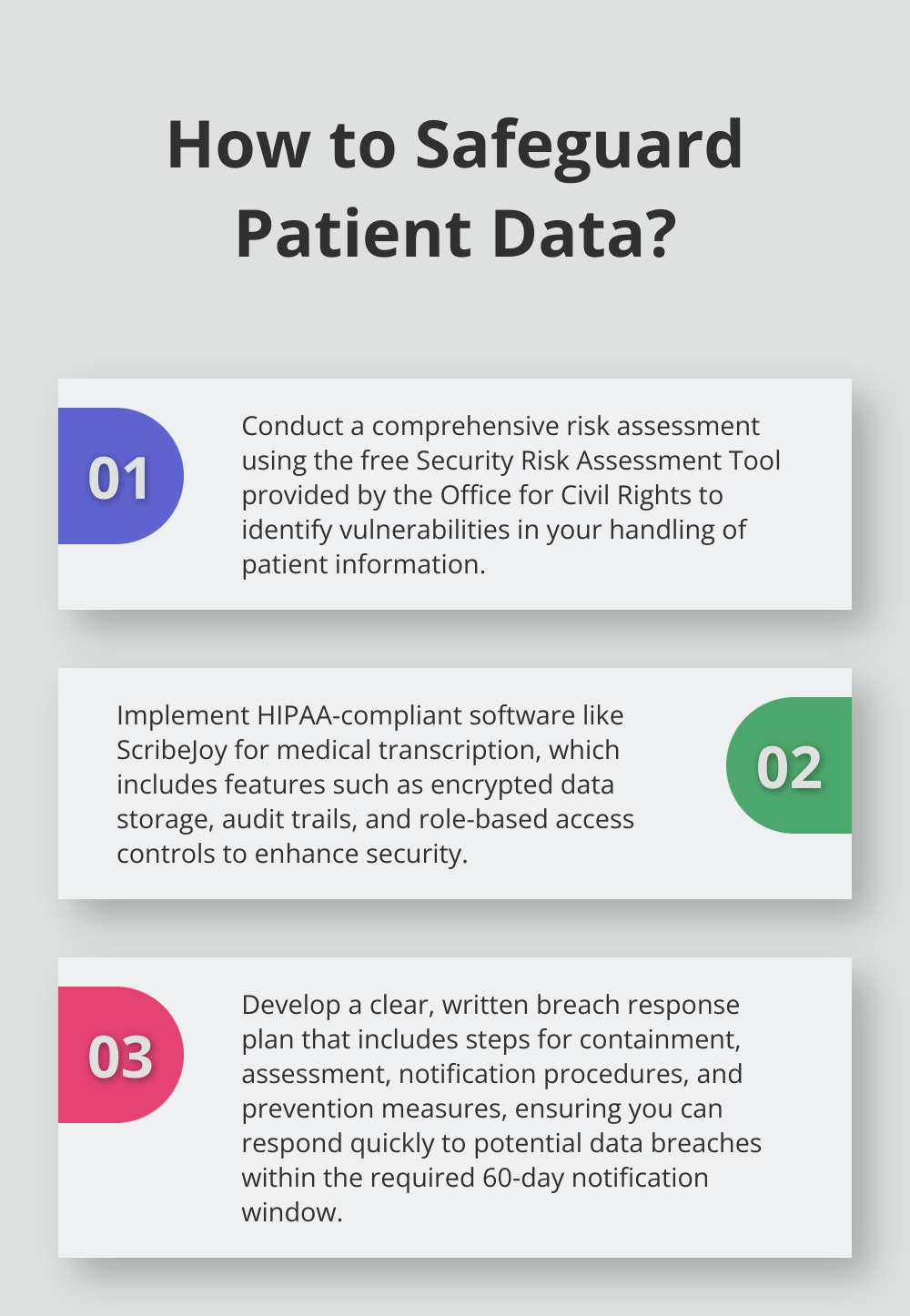Small business HIPAA compliance can be a daunting task, but it’s essential for protecting sensitive patient information and avoiding costly penalties. At ScriberJoy, we understand the challenges small healthcare providers face when navigating complex regulations.
This guide will walk you through the key steps to achieve HIPAA compliance, debunk common misconceptions, and provide practical tools and resources to streamline your efforts.
What is HIPAA and Why Should Small Businesses Care?
The Essence of HIPAA Regulations
HIPAA (Health Insurance Portability and Accountability Act) is a federal law that sets standards for protecting sensitive patient health information. For small businesses in the healthcare sector, HIPAA implementation is not just a legal requirement-it’s a vital step in safeguarding patient trust and avoiding substantial penalties.

HIPAA consists of several key components that small businesses must understand:
- The Privacy Rule: This establishes national standards for the protection of individuals’ medical records and other personal health information.
- The Security Rule: This requires covered entities to maintain reasonable and appropriate administrative, technical, and physical safeguards for protecting electronic protected health information (e-PHI).
- The Breach Notification Rule: This requires healthcare providers to notify patients when their unsecured protected health information is breached.
Common HIPAA Misconceptions for Small Businesses
Many small business owners incorrectly believe that HIPAA compliance only applies to large hospitals or insurance companies. This is a dangerous misconception. If your business handles protected health information in any capacity, you must comply with HIPAA regulations. This includes small medical practices, dental offices, and even businesses that handle health records as part of their services.
Another prevalent myth is that HIPAA compliance is too expensive for small businesses. While compliance does involve costs, they are minimal compared to the potential fines for violations. In 2022, 55% of the financial penalties imposed by OCR were on small medical practices.
Practical Steps for Small Business Compliance
HIPAA compliance doesn’t have to overwhelm you. Start with these practical steps:
- Conduct a thorough risk assessment to identify potential vulnerabilities in your handling of patient information. This step is often overlooked by small businesses but is critical.
- Develop clear policies and procedures for handling protected health information. This includes everything from how you store patient records to how you communicate with patients about their health.
- Train your employees. Your staff needs to understand the importance of protecting patient information and the specific procedures your business has in place. Regular training sessions can significantly reduce the risk of accidental breaches.
- Invest in HIPAA-compliant software solutions. Tools like ScribeJoy not only help with medical transcription but also ensure that your documentation processes adhere to HIPAA standards, providing an extra layer of security.
The Role of Technology in HIPAA Compliance
Technology plays a significant role in maintaining HIPAA compliance. HIPAA-compliant software (like ScribeJoy) can help small businesses manage patient information securely and efficiently. These tools often include features such as:
- Encrypted data storage and transmission
- Audit trails to track who accesses patient information
- Automatic backups to prevent data loss
- Role-based access controls to limit who can view sensitive information
By leveraging these technological solutions, small businesses can streamline their HIPAA compliance efforts and reduce the risk of costly violations.
As we move forward, let’s explore the specific steps small businesses should take to achieve and maintain HIPAA compliance.
How to Implement HIPAA Compliance for Small Businesses
Conduct a Comprehensive Risk Assessment
Start your HIPAA compliance journey with a thorough evaluation of your current practices. Identify all points where you handle protected health information (PHI), including electronic records, paper files, and verbal communications. Look for potential vulnerabilities in your systems and processes. The Office for Civil Rights (OCR) offers a Security Risk Assessment Tool tailored for small healthcare providers. This free desktop application walks users through the security risk assessment process using a simple, wizard-based approach, ensuring you address all critical areas.
Create Robust Policies and Procedures
Use the results of your risk assessment to develop clear, written policies that address identified vulnerabilities. These policies should cover data access, storage, transmission, and disposal. Include procedures for patient rights, such as accessing their own health information. The HHS website provides sample policies that you can adapt to your specific needs. Set a reminder to review and update these policies annually to maintain effectiveness and compliance with new regulations.
Train Employees as Your First Line of Defense
Your staff plays a critical role in preventing HIPAA violations. Schedule regular, comprehensive training sessions that cover HIPAA basics, your specific policies, and real-world scenarios. Make these sessions interactive and engaging by using case studies and role-playing exercises to reinforce key concepts. Recent data shows that in 2023, 725 data breaches were reported to OCR, with more than 133 million records exposed or impermissibly disclosed, underscoring the importance of thorough staff education.
Implement Strong Technical Safeguards
Protect electronic PHI with robust technical solutions. Use encryption for data storage and transmission, implement strong access controls, and maintain detailed audit logs. Consider partnering with a HIPAA-compliant cloud service provider to ensure secure data storage and backup. If you use medical transcription software, choose a solution like ScribeJoy that meets HIPAA standards and offers additional security features.
Prepare a Breach Response Plan
Despite your best efforts, breaches can occur. Develop a clear, written plan for responding to potential data breaches. Include steps for containment, assessment of the breach’s scope, notification procedures, and measures to prevent future incidents. The HIPAA Breach Notification Rule requires covered entities to notify affected individuals within 60 days of discovering a breach. A well-prepared plan will help you respond quickly and effectively, minimizing potential damage and demonstrating your commitment to protecting patient information.

HIPAA compliance requires ongoing attention and effort. To maintain your compliance status and protect sensitive health information, you must regularly review and update your practices. The next section will explore valuable tools and resources that can simplify your HIPAA compliance journey and help you stay on top of evolving regulations.
Essential Tools for HIPAA Compliance
HIPAA Compliance Software
HIPAA compliance software simplifies the management of regulatory requirements. These tools offer features such as guided video training, document management, risk analysis tools, audit trails, and customizable policy templates. Compliancy Group provides a comprehensive solution that guides users through the entire compliance process. HIPAA One specializes in risk analysis and management.

When selecting software, consider your specific needs and budget. Look for solutions that provide regular updates to keep up with changing regulations.
Expert Consulting Services
Personalized guidance from HIPAA consulting services can prove invaluable. These experts identify gaps in your compliance strategy and develop targeted solutions.
The HIPAA Group offers virtual HIPAA compliance officers who guide businesses through the entire compliance process. Prices vary, but many consultants offer flexible packages designed for small businesses.
Government Resources
The U.S. Department of Health and Human Services (HHS) offers numerous free resources for small businesses. Their website provides guidance documents, FAQs, and sample business associate agreements. The HHS also runs a Small Provider Assistance program, offering targeted support for practices with fewer than 10 full-time employees.
The HHS Security Risk Assessment Tool helps small providers identify potential security risks in their operations.
Transcription Software and HIPAA Compliance
HIPAA-compliant transcription software plays a critical role for healthcare providers handling patient information. ScribeJoy excels in this field, offering AI-powered transcription with human verification for over 99% accuracy. Unlike generic transcription tools, ScribeJoy caters specifically to medical documentation, ensuring that transcripts meet HIPAA standards.
ScribeJoy’s customizable templates and round-the-clock support make it an excellent choice for small practices aiming to streamline their documentation process while maintaining HIPAA compliance. The software’s built-in security features (encryption and access controls) provide an additional layer of protection for sensitive patient information.
Training and Education Tools
Effective employee training forms a cornerstone of HIPAA compliance. Online learning platforms like MedTrainer and HIPAA Exams offer comprehensive courses tailored to healthcare professionals. These platforms provide interactive modules, quizzes, and certificates of completion to ensure staff understand HIPAA requirements.
Some training tools (such as those offered by HIPAA Secure Now) include simulated phishing attacks to test and improve staff awareness of cybersecurity threats. Regular training (at least annually) helps maintain a culture of compliance within your organization.
Final Thoughts
HIPAA compliance for small businesses protects patient trust and prevents costly penalties. Small healthcare providers must understand HIPAA regulations, conduct risk assessments, and implement robust policies. Regular employee training and technical safeguards strengthen the compliance foundation.

The HIPAA compliance journey requires vigilance and adaptability as regulations evolve and new threats emerge. This effort enhances reputation, builds patient trust, and can streamline operations. Leveraging the right tools and resources simplifies small business HIPAA compliance.
ScribeJoy, a medical transcription software, combines AI technology with human verification for accurate, HIPAA-compliant documentation. It enhances efficiency while maintaining high data protection standards. Small businesses that prioritize compliance and utilize available resources can successfully navigate HIPAA regulations, positioning themselves as trusted healthcare providers.

Leave a Reply
You must be logged in to post a comment.